Digitizing and Restoring History
Dozens of volunteers preserved the works of an important early Black feminist educator, activist and author.
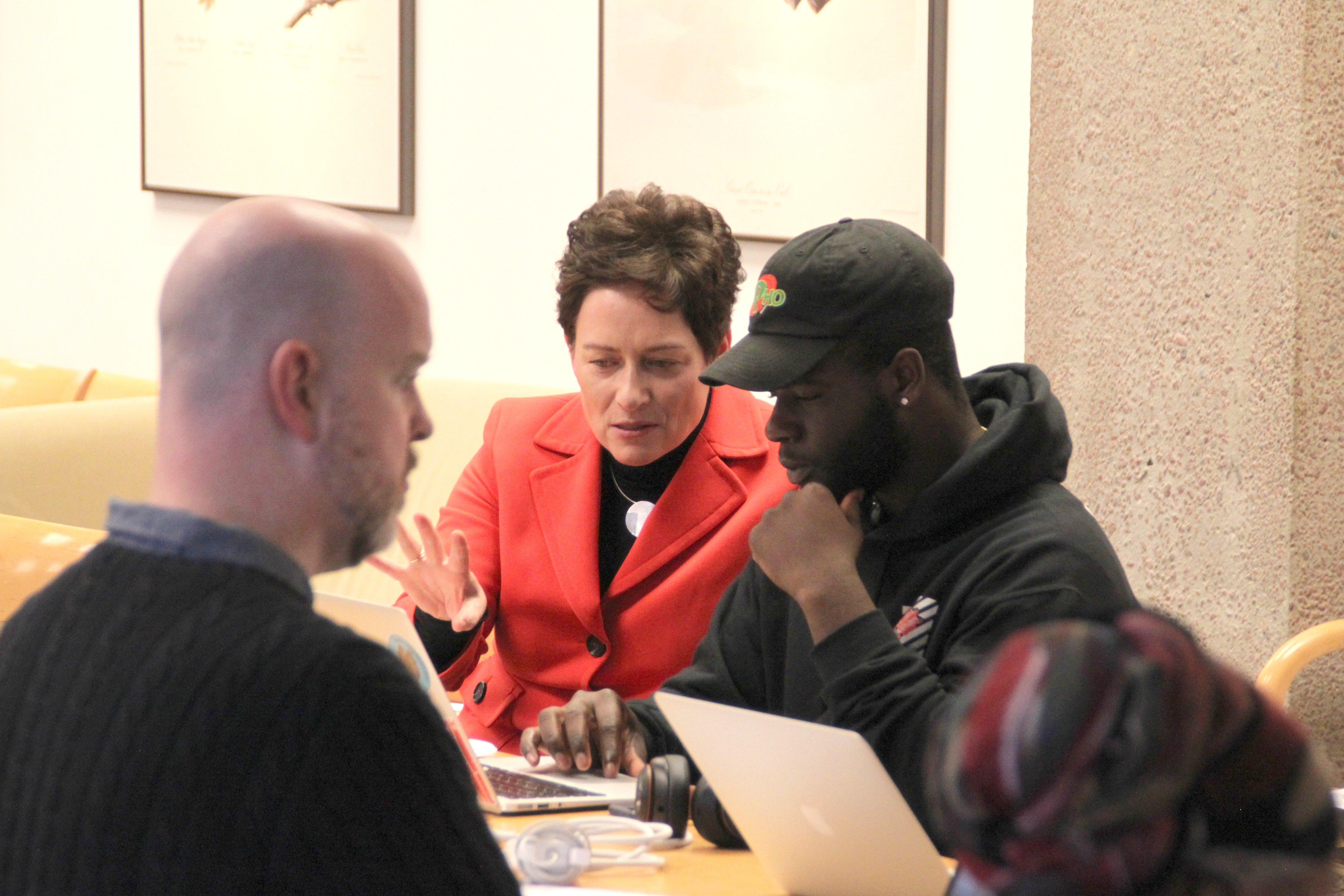
Update: As of Friday, February 14, reports showed the transcription of 868 pages, with over 4,586 total classifications in just a few hours at the transcribe-a-thon of the writings of Anna Julia Cooper. Dozens of volunteers contributed to this work at Syracuse University, learning about Anna Julia Cooper and the impact of her work. The archive is 83% complete, and the public is welcome to continue exploring or digitizing Cooper's material.
As an outspoken advocate of abolition and women’s rights, Frederick Douglass gladly accepted an invitation to the first Women’s Rights Convention in Seneca Falls, New York, in 1848. It was events like this, and being part of the “Underground Railroad”, that made Upstate New York, a hotbed for social justice and equality in the 19th century. Today, the Syracuse community can play a role too, by literally preserving history. On Frederick Douglass Day, February 14, a day which celebrates Douglass’ many contributions as an author, preeminent orator, and social reformer, the Humanities Center is partnering with the Colored Conventions Project to host a local transcribe-a-thon of the writings of Anna Julia Cooper as part of a national day of service.
Douglass Day Transcribe-A-Thon
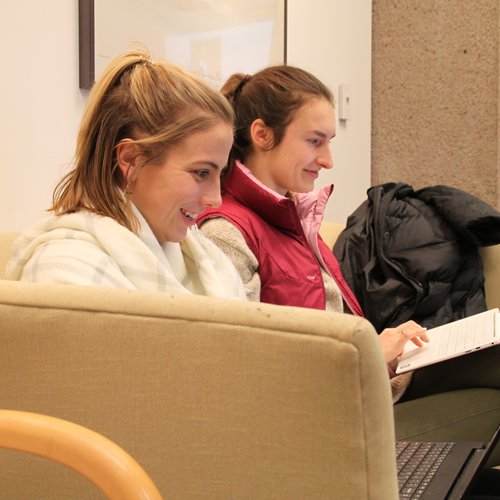
Graduate students Grace Swinnerton and Grace Fritzke transcribe the work of Anna Julia Cooper.
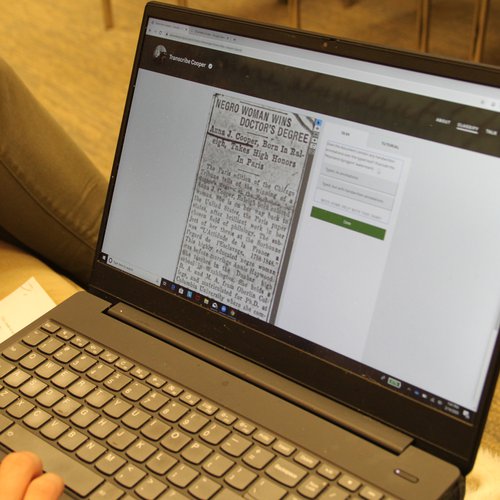
Volunteers transcribed materials including Cooper’s papers, notes, diaries, newspaper articles and more from Howard University’s Moorland-Spingarn Research Center archives.
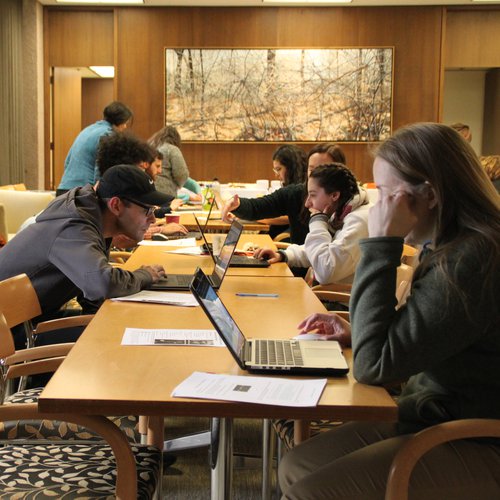
Volunteers filled the Peter Graham Commons, 114 Bird Library, to transcribe the works of Anna Julia Cooper on February 14.
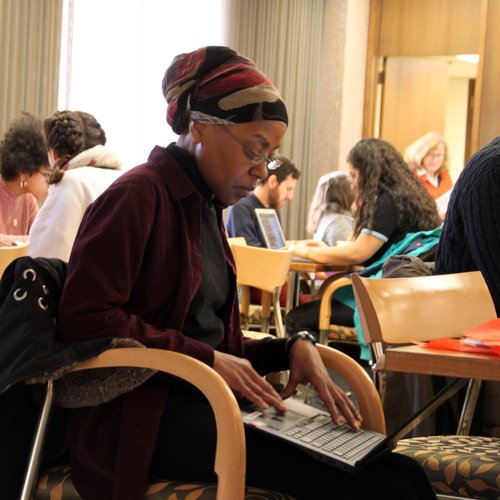
Joan Bryant, associate professor of African American Studies, transcribes activist and educator Anna Julia Cooper's materials into a digital database.
“Cooper’s ideas were groundbreaking,” says Vivian May, director of the Humanities Center and professor in the Department of Women’s and Gender Studies. May, author of “Anna Julia Cooper, Visionary Black Feminist: A Critical Introduction,” has published many articles about Cooper and her ideas, and even worked with the USPS to help craft the wording for Cooper’s first-class stamp in 2009. She continues, “Cooper was known for her advocacy for a liberal arts education for Black students, one that would free the mind, was culturally relevant, would raise consciousness and prepare one to combat inequality.”
Cooper acknowledged all forms of inequality as interrelated, in some cases opposing other women’s rights leaders, such as Anna Howard Shaw, a white women’s rights leader who tried to set women’s rights against Native American rights. Cooper rejected this notion, arguing that leaders should think about justice and equality for all.
The Humanities Center is hosting the transcribe-a-thon in collaboration with professor Joan Bryant and the Department of African American Studies; professors Dorri Beam and Patricia Roylance and the Department of English; Petrina Jackson, Special Collections Research Center Director, and the SU Libraries; and the Departments of History and Writing Studies, Rhetoric, and Composition.
